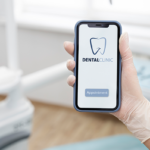The Key Role Of SEO In Dental Practice Marketing Online
In the competitive world of dentistry, establishing a strong online presence is essential for attracting new patients and retaining existing ones. Search Engine Optimization (SEO) plays a critical role in dental practice marketing, helping dentists stand out in a crowded market. SEO strategies can significantly enhance a dental practice’s visibility online, making it easier for potential patients to find their services. This article delves into why SEO is indispensable in the digital marketing strategies of modern dental practices.
Understanding SEO in Dental Practice Marketing
SEO for dental practice marketing involves optimizing your dental website and online content to rank higher in search engine results pages (SERPs). The goal is to increase organic (non-paid) traffic to your site, which can lead to more patient appointments and ultimately, business growth. Here’s how SEO achieves this:
1. Improving Online Visibility
The primary benefit of SEO is enhanced online visibility. Most patients start their search for dental services online, and appearing on the first page of Google significantly increases your chances of being chosen.
Keyword Optimization:
Incorporating relevant keywords such as “dentist near me,” “dental care [Your City],” or “emergency dental service” into your website’s content is crucial. SEO involves researching and using the keywords that potential patients are typing into search engines.
Local SEO:
Since dental services are often local, local SEO tactics are particularly important. This includes optimizing your Google My Business listing and ensuring your practice appears in local directory listings.
2. Building Trust and Credibility
Websites that rank higher in search results are often perceived as more credible and trustworthy by users. SEO helps build this trust by positioning your practice as a leading authority in the dental field.
Content Creation:
Regularly updating your website with informative, accurate, and engaging content can establish your practice as an expert in dental health. This might include blog posts, infographics, or videos that answer common dental questions or explain procedures.
Backlink Strategy:
Earning backlinks from reputable sites within the dental industry or local business networks can also boost your website’s authority and credibility in the eyes of search engines.
3. Enhancing User Experience
Google’s algorithms increasingly prioritize websites that provide a great user experience. SEO involves optimizing both the content and the technical aspects of your website to improve usability.
Mobile Responsiveness:
As mobile searches continue to rise, having a mobile-responsive website is crucial. SEO ensures that your website is accessible and performs well on all devices.
Website Speed and Navigation: Fast loading times and easy navigation are important factors in user experience and are thus crucial components of SEO. They reduce bounce rates and encourage potential patients to spend more time on your site.
4. Increasing Engagement and Conversion Rates
Effective SEO not only drives more traffic to your website but also focuses on converting that traffic into actual appointments.
Conversion Optimization:
SEO techniques can be used to optimize conversion rates by strategically placing appointment forms, contact information, and calls-to-action throughout the website.
Local Listings:
Ensuring your practice appears in local search results with accurate and complete information, including hours of operation, contact details, and positive reviews, can directly influence conversions.
5. Tracking Results and Adapting Strategies
The advantage of digital marketing, including SEO, is that it offers measurable results. Using tools like Google Analytics allows dental practices to track the effectiveness of their SEO strategies and make data-driven decisions.
Performance Metrics:
Analyzing key performance metrics such as traffic sources, page views, bounce rates, and conversion rates helps understand what’s working and what’s not.
Continuous Improvement:
SEO requires ongoing effort and adjustment based on performance data, emerging trends, and changes in search engine algorithms.
Conclusion
SEO is a cornerstone of successful dental practice marketing online. By improving visibility, enhancing user experience, and building credibility, SEO helps dental practices attract more patients and grow their businesses. In today’s digital-first landscape, investing in SEO is not just advisable; it’s essential for any dental practice looking to thrive and expand its patient base. As dental markets continue to get more competitive, effective SEO strategies can provide the edge needed to stand out.






